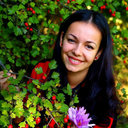Phytochemical Composition, Antioxidant, Antimicrobial and in Vivo Anti-inflammatory Activity of Traditionally Used Romanian Ajuga laxmannii (Murray) Benth. ("Nobleman's Beard" - Barba Împăratului).
Mots clés
Abstrait
In the Romanian folk medicine, aerial parts of Ajuga laxmannii ("nobleman's beard," Romanian - "barba boierului" or "avrămească" or "creştinească") are traditionally used as galactagogue and anti-inflammatory agents. The present study aimed to evaluate the chemical composition (polyphenols, iridoids, and phytosterols), antioxidant, antimicrobial and in vivo anti-inflammatory activity of different extracts of A. laxmannii aerial parts. The major identified bioactive compounds were rutin, 8-O-acetylharpagide and β-sitosterol. The antioxidant activity of A. laxmannii extracts was evaluated using several methods, and the results showed good antiradical effects. Moreover, the antimicrobial evaluation showed a potent antifungal activity against C. albicans and P. funiculosum. Furthermore, the anti-inflammatory effect was determined by monitoring some parameters involved in the inflammatory process. The results obtained showed differences between the analyzed extracts; and therefore the importance of choosing the best solvent in order to extract the appropriate amount of bioactive compounds. A. laxmannii ethanol extract showed an anti-inflammatory effect by reducing total leukocytes, PMN, phagocytosis, and oxidative stress. Compared to diclofenac, only the 50 mg/mL A. laxmannii extract had better anti-inflammatory and anti-oxidative stress effects, and this could justify the importance of a correlation between the activity and the used concentration. These findings strongly suggest that A. laxmannii could be considered as a valuable source of bioactive compounds, which could be further valued as anti-inflammatory agents in the composition of several herbal drugs.


